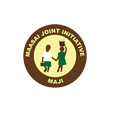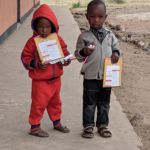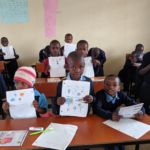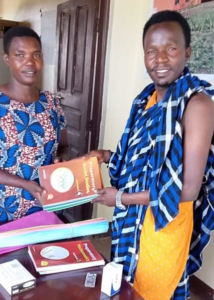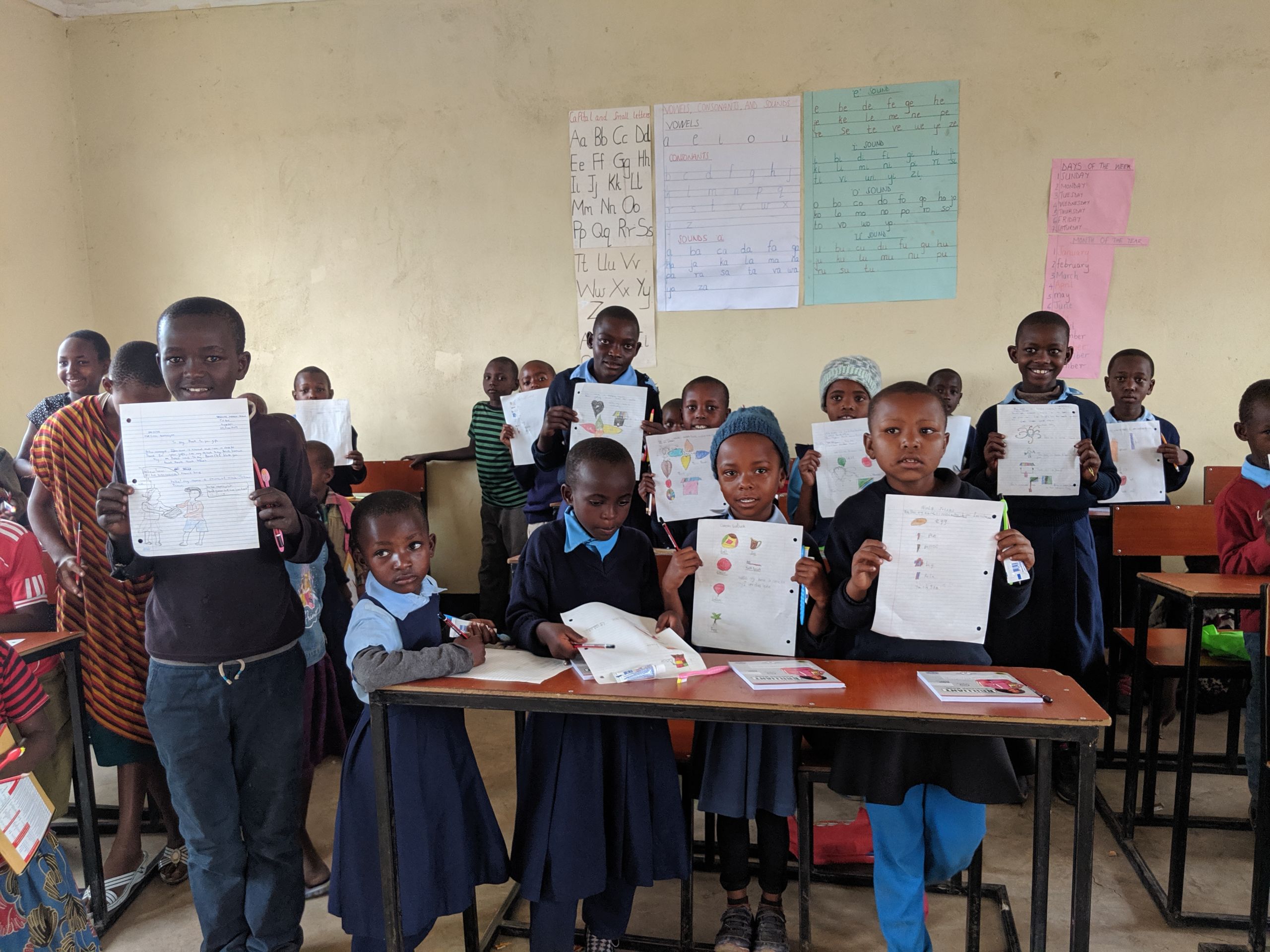Due to lack of education and access to resources, girls in rural areas who have reached puberty have low attendance in school due to their monthly menstruation. In an effort to control it, they will use unhygienic materials such as rags or corn husks leading to infection. MAJI Inc, in a combined effort with AYMO, hosts classes where nurses and doctors travel to these remote areas and provide lessons free of cost to young girls ages 13-20. During these courses they are taught about their reproductive systems, proper hygiene to manage their cycle, and FGM. Through this education they will be able to maintain their health and improve their attendance in school, thereby reducing drop out rates. Make a donation today to support these girls on their journey to graduation!
Together we can do so much for people that it will mean the world to. We are a non profit that seeks to make every dollar and cent that we can go to the people. Please look through this gallery to see past projects and meet the people of Makuyuni Juu, Tanzania!
To provide services to improve the educational and environmental needs of the Maasai people of Tanzania.

Goal: $7,200 Raised: $4,210
Nareeth’s Sponsorship
We first met Nareeth (also seen brother Adamu) in 2017 when she was seen around the village regularly helping her mother with chores such as fetching water, and gathering supplies to cook with, or tending to the school’s chicken farm by feeding and watering the hens. She is currently in Class 5 and will need sponsorship to be able to attend Secondary School after Class 8. MAJI has offered to provide this! One years expenses for school is $1800 which covers room & board, food, and tuition. Any contribution is greatly appreciated! Please note “Nareeth’s Sponorship” in the memo of your donation.
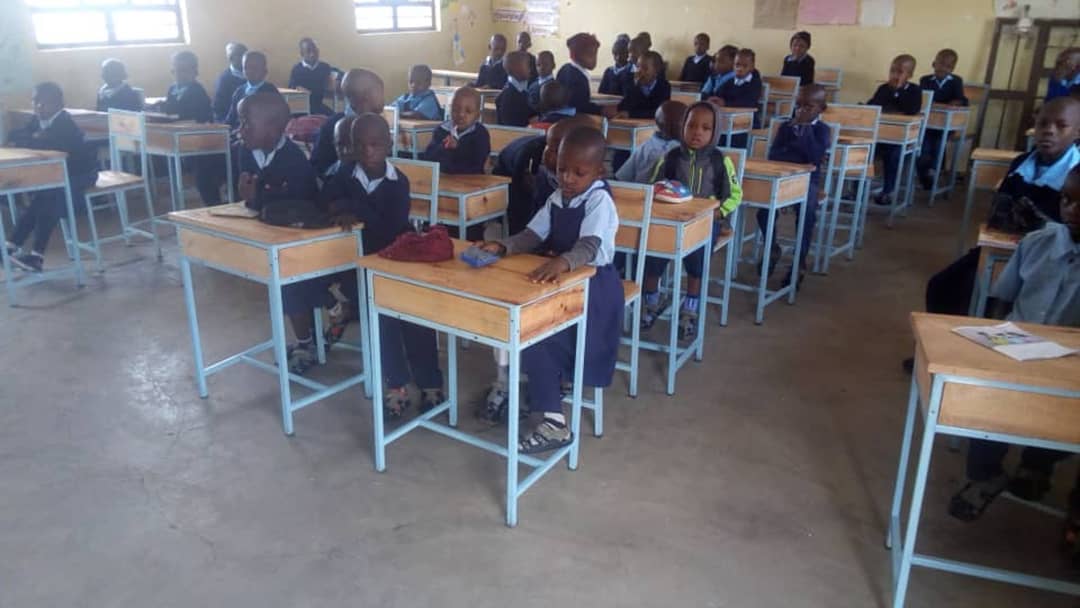
Nashipay Maasai School

Goal: $500 Raised: $300
First Aid and Personal Hygiene Education
Nashipay Maasai School
COMPLETED PROJECTS
The village would like to prevent or minimize the soil erosion that is destroying their roads and preventing their crops from reaching full maturity. After researching different techniques, we have decided that building a series of check dams throughout the region would be the most effective. There have been 13 check dams built and they are functioning at 50% effectiveness due to quick, heavy rains.
The AVID Program at Lake Minneola High School, Florida partnered with MAJI to provide every student at Nashipay Maasai School with a pair of shoes from the NGO “The Shoe That Grows”. In June of 2019, 56 shoes were delivered to the village and children between the ages of 3-14 received a new pair of shoes!
The village is still struggling with soil erosion and upon consulting a forester in Arusha, we decided to plant acacia trees along the river edge. He also stated that planting citrus trees would be beneficial for both the soil and the village. In October 2018, we planted 50 trees: 25 acacia trees and 25 fruit trees within the school property. However, the village is at the mercy of the weather and a severe drought hit the region, resulting in only one good rain. 17 trees have survived and discussion is occurring on how the project can be improved for the second planting.
During 2020 COVID-19 ravaged the world and we immediately thought of our friends overseas. We distributed 10 waters jugs and soaps throughout the village so that the community would be able to practice safe hygiene with ease. Additionally, we set up a medical fund so that anyone who presented with a fever could afford to see a doctor.
Despite “For The Love of Africa” finding the funding to pay for a well on the school property, the village still struggles with water availability. The well is fueled by solar energy, which is not always reliable. During our visit in 2019, there was complete cloud cover for 4 consecutive days and the village had to find alternative sources of water. MAJI has built three 5,000 liter tanks and gutter systems on two school buildings and the village requested we build another one. It was decided it would be more advantageous to build a 30,000L concrete tank that could store water during times of low sunlight availability.
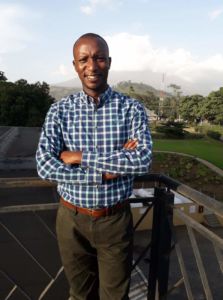
Who Is Obeid G. Mollel
Obeid Gerald Mollel was born on February 17, 1987, in Arusha, Tanzania, to a typical Maasai family that lacked education but had a strong spirit. His father, Gerald Kitesho Mollel and his mother Dinna Dallut ran farming and livestock keeping in the family lands. His father, following the common Maassai practice of polygamy, has three wives: Christina Melenda, Dinna Dallut and Lucy Sindiyo. Obeid is the 16th child out of 23 children of his father. In 2008, Obeid received the opportunity to attend the Institute of Accountancy in Arusha and it was during his final year of college that he had the idea to start a company that would provide educational growth and living standard improvement for Maasai children through a world in which people and wildlife live together sustainably forever. It was through this vision that he co-founded the company MTA: Maasai Tribe Adventure (www.mtasafaris.com). MTA is focused on achieving this vision in the Tanzania by taking a percentage of its profit and returning it back to help communities. Additionally, Obeid works at the Mount Meru Hotel in Arusha as a Store Manager. His efforts to improve the lives of other Maasai are supported by his wife, Winner Olodi Lendisa and son, Omen.

Who Is Clamian Kitesho
Mr. Clamian Kitesho has received a formal education to grade 12, and subsequently attended the College of African Wildlife Management, receiving an Advanced Diploma in Wildlife Management. Following a further one-year of study at the NOLS Global Wilderness School, he obtained a Certificate in occupational skills including wilderness medicine and risk management. He subsequently attended Mount Meru University, and graduated with a B.A. in Natural Resource Management.
Building on this educational foundation, he has developed a successful career as a professional environmental science guide for over 20 years, with his safari company Warrior Trails (www.warriortrails.com). His company offers authentic African wilderness experiences and emphasizes natural resource conservation, environmental health and sustainable human development. He is the founding member of the Maasai Conservation Fund, which is an NGO that educates the general public about Maasai communities and their traditions, and aims to develop and encourage healthy Maasai. He has led his community in the conceptualization, development and construction of the initial classrooms of the Nashipay Maasai School as well as the longer-term plans and goals.
Please click the link to the right to donate. any amount is appreciated. Thank you for your generosity.
